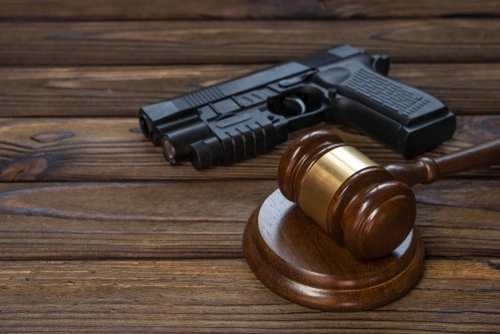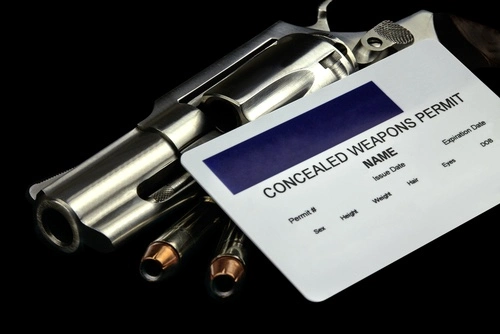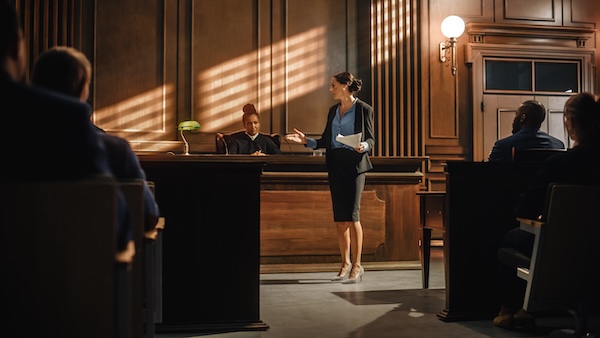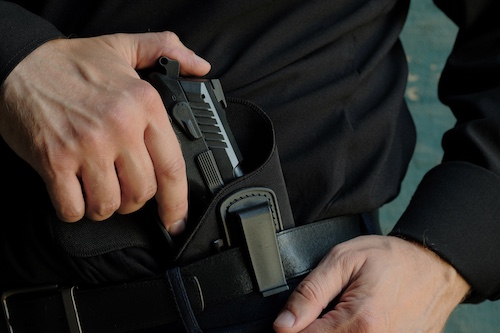Owning or possessing a firearm as a convicted felon in Tennessee is a complex legal matter governed by both state and federal laws. The right to bear arms is significantly impacted by criminal charges and convictions, often resulting in the loss of this constitutional right. While certain rights are lost upon conviction, the specifics of firearm ownership can vary based on the nature of the crime, potential legal remedies, and recent changes to state regulations. Understanding these laws is crucial for felons who wish to regain their rights or avoid further legal issues.
In this blog, we will explore the laws surrounding firearm ownership for felons in Tennessee, including federal and state restrictions, potential exceptions, and the steps you can take to restore your rights with the help of an experienced Nashville gun crimes lawyer.
Can a Felon Own Firearms Under Federal Law?
The federal law governing firearm possession by felons and other prohibited individuals is outlined in 18 U.S.C. § 922(g), which imposes strict restrictions and severe penalties for violations.
Definition of “Prohibited Person”
Under 18 U.S.C. § 922(g), certain individuals are classified as “prohibited persons” and are barred from owning, possessing, or using firearms. These include individuals convicted of a felony—a crime punishable by more than one year in prison. Other categories include fugitives from justice, unlawful users or addicts of controlled substances, individuals dishonorably discharged from the military, and those with domestic violence convictions, among others.
Actual vs. Constructive Firearm Possession
Possession under 18 U.S.C. § 922(g) can take two forms: actual and constructive. Actual possession refers to physically holding or having control of a firearm. Constructive possession, however, occurs when an individual has the ability to access or control a firearm, even if they never physically touch it. Both types of possession can result in serious legal consequences for felons.
Penalties for Felon Gun Ownership
Violating 18 U.S.C. § 922(g) carries severe penalties, especially for individuals with a felony conviction. A conviction can result in up to 10 years in federal prison, substantial fines, and additional penalties such as supervised release. Repeat offenders or those with prior convictions for serious crimes, such as violent offenses or major drug crimes, may face even harsher sentences under the Armed Career Criminal Act, which can extend imprisonment to 15 years to life.
Can a Convicted Felon Own a Firearm in Tennessee?
Tennessee state law imposes strict regulations on gun ownership for felons, outlining specific prohibitions and limited pathways for rights restoration.
General Felon Firearm Restrictions
Tennessee law prohibits individuals convicted of any felony offense from owning, possessing, or carrying firearms. This restriction applies to individuals convicted of any felony, regardless of the nature of the crime. Felons in Tennessee lose their right to own a firearm upon conviction and are subject to severe penalties if found in possession of one. Unlike some states, Tennessee law does not automatically restore gun rights after the completion of a sentence.
Enhanced Handgun Carry Permit Regulations
Under T.C.A. § 39-17-1351, Tennessee issues handgun carry permits, but felons are ineligible to apply. Even individuals convicted of certain misdemeanors, such as domestic violence or stalking, can be denied a handgun carry permit. This includes situations where individuals are under a court’s jurisdiction for Class A misdemeanors, like a DUI, until the sentence is fully completed. Additionally, if an individual is convicted of a second DUI within ten years of the first offense, they must wait five years after the conviction to apply for a permit.
Permitless Carry (Constitutional Carry)
As of July 2021, Tennessee has adopted a permitless carry law, often referred to as “Constitutional Carry,” which allows individuals to carry a handgun without a permit. However, this law does not apply to convicted felons. Regardless of permitless carry laws, felons are still barred from owning or carrying firearms under both state and federal law.
Penalties Under Tennessee Gun Laws for Felons
Felons found in possession of a firearm in Tennessee face serious legal consequences, including additional felony charges, imprisonment, and fines. Such an offense can be categorized as a Class B felony if the prior conviction involved a violent felony or a crime involving a deadly weapon, highlighting the serious legal consequences, including lengthy incarceration and significant fines.
The state regularly conducts criminal background checks on handgun permit holders, and any new criminal convictions can result in the revocation of gun permits. Tennessee also allows individuals to petition the court for judicial review if their permit application is denied or revoked.
Can a Felon Ever Own Guns? Restoring Rights
While Tennessee law places significant restrictions on gun ownership for felons, there are limited exceptions and legal avenues for restoring firearm rights in specific circumstances.
Expungement and Restoring Gun Rights for Felons
In Tennessee, one potential avenue for restoring gun rights for convicted felons is through expungement. Expungement is a legal process where certain criminal records are erased or sealed, effectively restoring the individual’s rights, including the right to possess firearms. However, not all crimes are eligible for expungement.
Typically, non-violent offenses and lower-level felonies may qualify, but violent felonies, serious drug offenses, and crimes involving the use of weapons do not. A felon seeking expungement must petition the court and meet specific eligibility criteria.
Pardons as a Legal Remedy
A pardon is another method by which a felon may regain their firearm rights. Granted by the governor, a pardon can restore certain civil rights, including the right to possess a firearm. However, pardons are rare and typically granted only in exceptional cases where the individual has demonstrated significant rehabilitation.
The process of applying for a pardon involves a thorough review of the individual’s criminal history and character, and it is not guaranteed even for those who have completed their sentence.
Restrictions on Rights Restoration for Violent Felons
For individuals with felony convictions, particularly those convicted of violent felonies, felony drug offenses, or crimes involving deadly weapons, Tennessee law imposes strict prohibitions on rights restoration. Even with an expungement or pardon, these individuals are generally barred from regaining the right to own or possess firearms.
Crimes such as armed robbery, aggravated assault, or manufacturing and distributing controlled substances are considered too severe to warrant the restoration of firearm rights, regardless of the length of time since the conviction or any rehabilitative efforts made.
Judicial Review and Appeals
In some cases, individuals who have been denied the restoration of their gun rights or have had their handgun carry permit revoked can petition for judicial review. This process allows the individual to appeal the decision in court, where a judge will evaluate the case and determine if the denial or revocation was appropriate under the law.
While judicial review provides a potential pathway for felons to challenge the decision, the success rate depends heavily on the nature of the original offense and the individual’s criminal history.
Practical Considerations and Next Steps for Felons
For felons navigating the complexities of firearm laws, understanding practical steps and legal options is essential to avoiding further legal complications and potentially restoring rights.
Understanding Permanent Restrictions
Felons should be fully aware that their firearm rights are permanently revoked due to criminal offenses unless specific legal actions, such as expungement or a pardon, are successfully pursued. This restriction applies for life and does not expire over time, regardless of the nature of the felony or the individual’s post-conviction conduct. Felons must remain vigilant in understanding these restrictions to avoid inadvertently violating firearm possession laws.
Avoiding Constructive Possession
Felons must take careful measures to avoid being in situations that could be interpreted as constructive possession of a firearm. This includes ensuring that no firearms are present in shared living spaces, vehicles, or personal belongings. Even if a gun belongs to someone else, proximity to the weapon can result in serious legal consequences. Clear communication with others in shared spaces and avoidance of environments where firearms are present are critical to staying compliant with the law.
Seeking Legal Restoration of Rights
For felons seeking to regain their firearm rights, legal remedies such as expungement or a pardon should be explored. Expungement may be available for non-violent offenses, while pardons are less common but can restore gun rights in rare cases. Consulting with a skilled attorney familiar with Tennessee gun laws and rights restoration processes is crucial to determining eligibility and navigating the legal system effectively.
Maintaining Compliance with State and Federal Law
To avoid future legal issues, felons must maintain strict compliance with both state and federal regulations regarding firearm possession. This includes staying informed of any changes to gun laws and understanding the full scope of restrictions that apply to their status. Regularly checking in with legal counsel or seeking updates on legal developments can help prevent inadvertent violations that could result in severe penalties.
Consult With an Experienced Nashville Gun Crimes Attorney ASAP!
If you’re a convicted felon in Tennessee and are unsure about your rights regarding firearm ownership, it’s critical to seek legal guidance. At Byron Pugh Legal, we specialize in gun crime defense and can help you understand your options, whether you’re facing charges or looking to restore your firearm rights.
Contact us at 615-255-9595 for a free case review!








